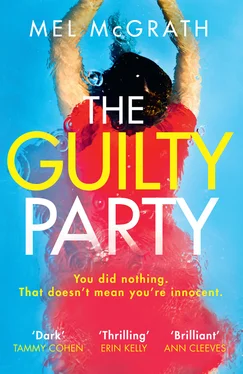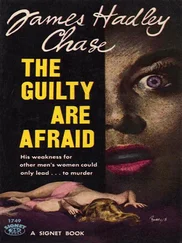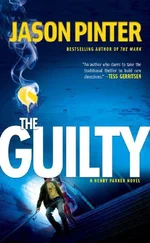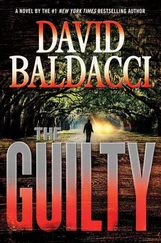‘Ordering the Uber right now,’ Dex says, pulling his phone from his pocket.
Anna leans against the retaining wall of the municipal flower bed beside the entrance and waits with them, overwhelmed by the effort of seeming so normal when she’s feeling as if she might at any moment crack open and the separate pieces of her heart fly out into what remains of the night.
‘Anna, gorgeous girl, you’re shaking!’
She brushes this off with a smile. Why does it always have to be Dex who notices these things? ‘Just tired.’
The cab arrives and takes the problem back to the flat with the river view from where he came. And oh, the relief! The instant the vehicle is out of sight her legs go from under her and she has to sit back against the flower bed and recompose herself.
She takes a deep breath and holds it until her face feels as if it might explode then lets it out in one, in the hope that it might take all the guilt and the trauma of the night with it. Adjusting her jumpsuit and smoothing her hair she goes back through the hospital swing doors and picks up the taxi phone.
A voice asks, ‘Where to?’
Home, she thinks. Back to Ralphie.
6.05 p.m., Thursday 29 September, Dorset
Within minutes of my arrival at the cottage, we have settled back into our habitual routines. Dex, the entertainer, is telling one of his bad jokes; Anna, the doer, is rifling through cupboards looking for box games and, even though there’s no signal, Bo, the bystander, is scrolling idly through his phone. And I am sitting at the kitchen table observing all this, beside me a bottle of wine, more than half empty now, and the discarded copy of the Standard , reminding me of all those years, before I gave up on myself, when I would grab a copy at the tube on my way home from teaching and look forward to sitting down with a glass of wine and unwinding with the crossword. And now? Why not?
‘Anyone got a pen?’
‘There’s one in that pot there, by the sink,’ Anna says, as if it’s something she has always known. Of the four of us, Anna has always been the most observant and the tidiest, the pickiest eater, the most careful driver, the girl in control, the subject of male admiration and female envy. It was Anna who introduced me to Dex. She was in my seminar group but it was months before I plucked up the courage so much as to smile at her. Anna was both posh and cool, which was rare at Oxford, where the cool set and the posh set didn’t often intersect. She had a smartphone then, in 2006, which was the hippest thing I’d ever seen. I would overhear her talking about people she knew who had parts in Harry Potter films, people who went snowboarding in Aspen and went to Glastonbury on ‘access all area’ passes. She wore tiny shorts and minis with Uggs and she had all this hair which she wore long with a fringe half obscuring her eyes. In Oxford, where it rains all the time, I never once saw her look anything but perfectly groomed. And of course she lived out of college, in a house in Jericho, which was where all the cool students had rooms and her housemates were all DJs and part-time games designers.
To a girl like me, who’d grown up on an estate in a dreary commuter belt town at the end of the Metropolitan Line, with a mother who drank and served family sized packs of Wotsits for tea and a father who pretended to go to his job at the council every day for six months after he’d been sacked, Anna seemed to have come from another planet. From the moment I first saw her in my seminar group I was half in love with her. I still am.
As for what Anna saw in me? A certain kind of naïve intelligence perhaps. A willingness to please. Early on I had given up on understanding people, who were beyond me. Instead I had made myself a quick study of the material business of the world. By the time I was ten I knew the names of thirty-seven species of migratory birds and could name all the capitals of the world. Facts were the barricades behind which I retreated from Mum’s alcoholism and Dad’s weirdness. People-pleasing was the Technicolor coat I wore to disguise the drabness of my surroundings. Soon I became good at being able to absorb, even to take on, the self-serving lies of others, and pretend they were true. I knew my dad wasn’t really going to work every morning and I knew my mother was keeping vodka miniatures buried in the cat’s kibble long after she swore she’d given up. I never confronted them because I knew it wouldn’t change anything and would probably make all of us even unhappier. Perhaps it’s this that Anna sensed in me. She knew I would never challenge her. So long as she and I were friends, Anna would always be the Group’s number one girl.
‘You’re not going to do crosswords all weekend, are you, darling?’ she asks me now, one eyebrow raised.
‘Nope.’ I flip the paper over to the front page to find the relevant page number on the printed ticker and I’m flicking through when my eye is drawn to a headline in the Metro pages.
The body has its own visceral intelligence. It reacts before the mind has time to catch up. Daffy Duck has run off a cliff and is paddling in the air. His mind can’t compute, which explains the expression of stupid bewilderment on his face, but his body knows exactly what’s about to happen.
It happened to me when two policewomen appeared at my door with news that my mum had been found dead beside an empty two-litre vodka bottle. It happened when I watched the man in the alley grab the woman’s hair. It’s happening now.
Police appeal for witnesses in festival woman’s death
As I read on it’s as if tiny particles of dark matter begin to collect in the air like soot rising from a coal fire. How could we have missed this? How could we not have known?
Police are launching an appeal for witnesses in the death of 27-year-old Marika Lapska, a Lithuanian national, resident in London. Lapska worked as a food delivery bicycle courier. Her body was discovered in the Thames hours after a music festival in Wapping. She was wearing a festival band around her wrist. Police are anxious to speak to anyone who may have known Lapska or seen her on the night of Saturday 13 August.
There’s the usual Crimestoppers number and below it, almost impossible to look at, is a grainy, heart-stopping CCTV still of a round-faced woman with sharp features and bold, enquiring eyes. Is this her, the woman we all saw in the alley? I scan the cheekbones, the eyes, the full, soft lips, check the shape of the hairline, the placement of the ears, but nothing rings any bells – and there is no particular arrangement of human features, after all, which says, I have been raped . Is this the face? So difficult to tell. There’s no clear picture in my mind, hardly surprising since whoever was attacking her was pushing her face against the wall. But what if I did see her face and have somehow blanked it from my memory? Aren’t eye witnesses supposed to be notoriously unreliable? What if the figure in the alley wasn’t her? What if the woman we saw walked away from that obscene event and brushed herself down and is living her life somewhere in the capital?
Stealing another glance at the picture now, focusing on the woman’s clothes, is there anything there I remember? I take my time and do a bit of peering. It’s then it happens. A sudden illumination, like a camera going off in a dark room. A mind flash in canary yellow and sky blue, the colours of the scarf the woman in the picture is wearing.
I remember that scarf. Every detail remains as clear to me as it was on the night itself, illuminated briefly in Dex’s camera phone. A jaunty canary yellow with sky blue pom-poms. I remember the incongruity of it. The holiday colours, those perky pom-poms which seemed somehow innocent. There’s no question that this was the same woman. How desperately I’d like to shut the pages of the paper and pretend not to have seen her. But it’s too late. Marika Lapska has spoken to me. She’s calling out and it would be inhuman to ignore her now.
Читать дальше




![О Генри - Чья вина? [The Guilty Party]](/books/405337/o-genri-chya-vina-the-guilty-party-thumb.webp)







